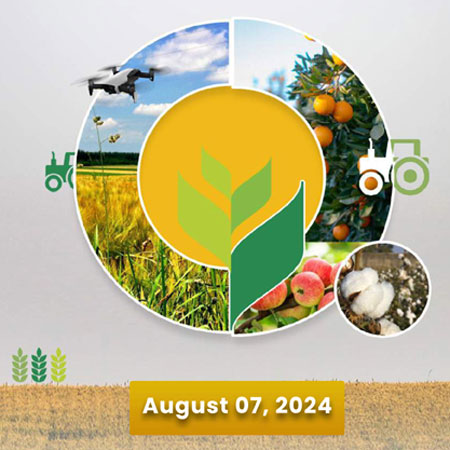
Shaifalika Panda wears multiple hats. The Trustee & Founder CEO at Bansidhar & Ila Panda Foundation (BIPF) is also the Chief of CSR (Special Initiatives) at Indian Metals and Ferro Alloys (IMFA). She explains that her roles at IMFA) and BIPF are like two phases of the same journey. IMFA, established in 1961 in Koraput, is a company driven by the vision of creating livelihoods in Odisha. This idea is central to its ethos, and the company’s success is deeply tied to community development. By the time she took the helm, IMFA was already a leading ferro alloy producer with operations in four districts of Odisha.
Her initial role at IMFA, which she refers to as Phase 1, was to steer the corporate social responsibility (CSR) vision. This phase was pivotal in aligning social development initiatives with the business goals of IMFA. It involved crafting strategies that integrated CSR with the company’s broader objectives and selecting key geographical areas for investment. This strategy eventually led to the creation of BIPF, which became her focus in Phase 2.
At BIPF, Shaifalika Panda’s work is hands-on implementation. Unlike other corporations that may partner with NGOs, BIPF prides itself on directly managing and implementing initiatives. She highlights that while her work at IMFA was about laying the foundation and shaping strategy, her work at BIPF involves executing these strategies on the ground level.
Bridging the Gender Gap
The foundation works under verticals like health, livelihood, education, WASH, and interestingly, and advocacy and appreciation and gender is a cross-cutting focus area. And understandably so due to the gender gap. Attributing it to patriarchy, socio-cultural norms, and a lack of awareness, she says that these issues manifest in the form of unpaid care work, limited access to education, and a lack of voice in household decision-making.
Shaifalika Panda is clear in her belief that empowering women is not enough on its own. Instead, she emphasises the need for creating an environment where women can thrive. This requires reshaping stereotypical gender expectations for both men and women, addressing these biases in the family, community, and workplace. She stresses the importance of early interventions, suggesting that gender-sensitive training in schools and homes is crucial to break traditional gender norms.
She adds that one of the fastest ways to drive this change is through community-driven, behaviour-change campaigns. These initiatives, leveraging media, influencers, and technology, can help spread awareness. However, Shaifalika Panda emphasises that gender equity is not just about empowering women; men must also be part of the solution to achieve lasting change.
A Holistic Approach
Shaifalika Panda underscores the importance of a multi-dimensional approach to empower women in marginalised communities. She believes that it is essential to address both immediate barriers and the long-term systemic issues these communities face. A holistic approach combining education, healthcare, economic empowerment, legal rights, and mindset shifts is needed to make a lasting impact.
She points out that while many government schemes, such as the Lakhpati Didi scheme, exist to support marginalised communities, the challenge lies in helping these communities access them. Awareness is a key issue, as many women are unaware of the available resources. By connecting these women to such schemes and promoting financial and social literacy, these communities can better navigate and benefit from these opportunities.
Additionally, she stresses the importance of community buy-in. She argues that changing the mindset of the community leaders, elders, and families is crucial for fostering an environment that accepts and supports empowered women.
Mentoring for Empowerment
Shaifalika Panda reflects on her involvement as the chair of the G20 Empower Group on Mentorship, which focused on women’s entrepreneurship, leadership, and education. A cross-cutting theme in this initiative was ensuring women had access to technology and digital tools. She notes that mentorship plays a critical role in helping women overcome systemic barriers and gain the guidance they need to succeed.
Through the platform, women were able to access an aggregator platform that provides information about available schemes, financial linkages, and market opportunities. She believes this has been incredibly helpful in advancing women’s empowerment, as it provides both the knowledge and networks necessary for career growth and entrepreneurial success.
Reimagining CSR to Catalyse Change
When discussing the future of CSR, Shaifalika Panda believes that strategic investments are key to catalysing more significant change. CSR, in her view, has evolved from being a sporadic, charity-based effort to a more structured approach with measurable outcomes and long-term social impact. She is optimistic that this trend will continue, with CSR becoming less about compliance and more about purpose-driven initiatives.
She advocates the importance of collaborations in achieving the United Nations’ Sustainable Development Goals (SDGs) by 2030. According to her, no single organisation can address these challenges alone. By partnering with other organisations, sharing knowledge, and combining efforts, corporations, governments, and NGOs can create more scalable and impactful solutions. She also highlights the role philanthropy plays in filling crucial gaps, particularly in funding long-term interventions and allowing for flexible, local solutions.
Driving Intergenerational Change
Shaifalika Panda talks about the foundation’s partnership with the government of Odisha to advance vocational training and skill development. She emphasises that education and skill-building are vital to intergenerational change, as these areas directly impact long-term social mobility. At BIPF, they focus on providing both vocational and livelihood skills, ensuring that marginalised communities can access economic opportunities.
One of the foundation’s flagship projects, Project Unnati, focuses on social and financial inclusion through self-help groups (SHGs). She notes that the project has already benefitted around 4,000 women and aims to expand by 30% in the upcoming year. Importantly, the project partners with local administration to connect beneficiaries to government schemes and other resources, ensuring that the women involved receive comprehensive support.
The foundation’s approach includes a three-year hand-holding process, during which they provide continuous support. She explains that they only exit the project once certain parameters for success are met, and even then, they ensure some form of mentorship continues. The ultimate goal is to empower these women to become self-reliant, making Project Unnati a form of group mentorship with an emphasis on long-term sustainability.











